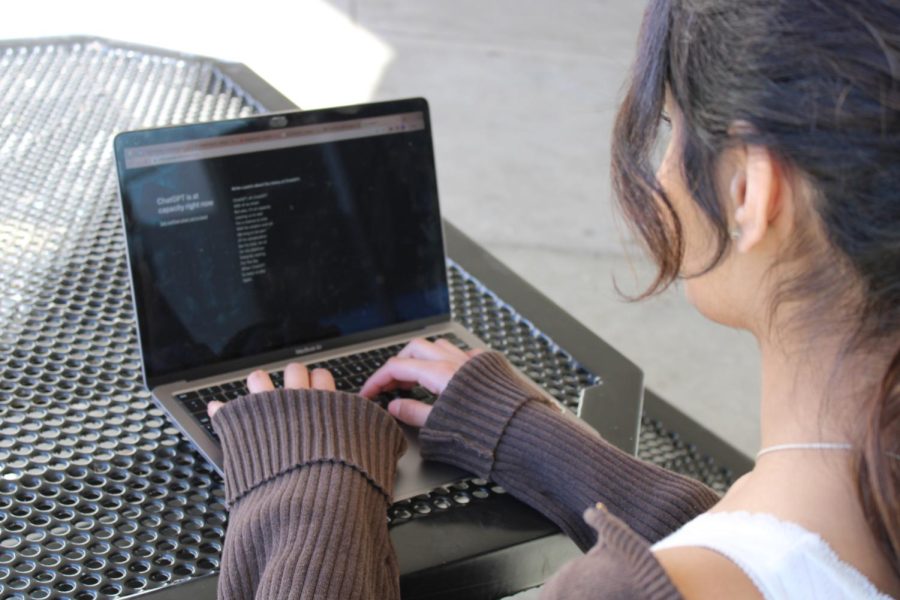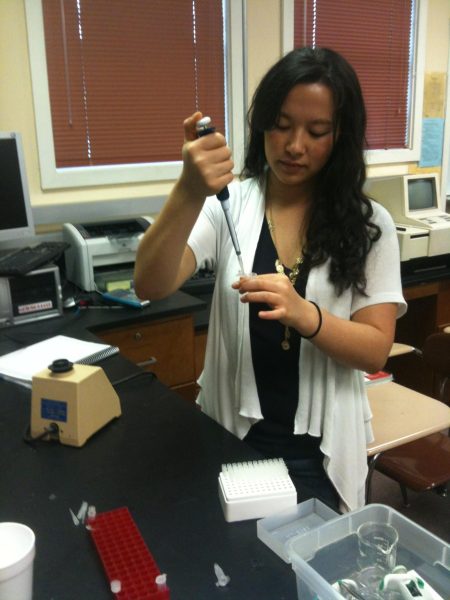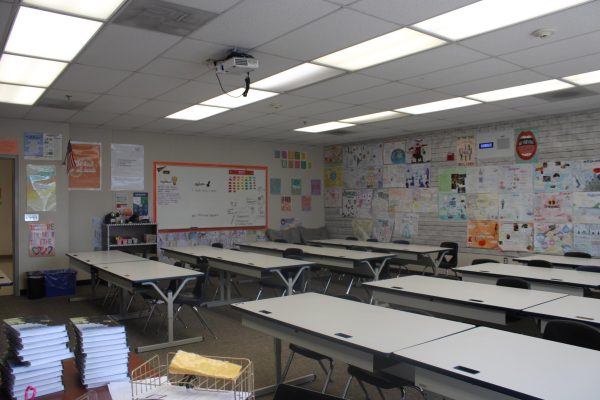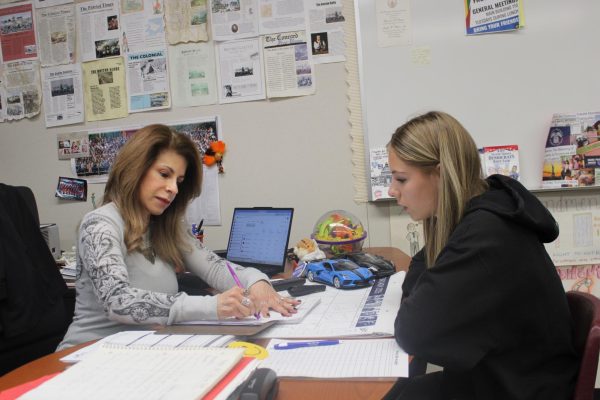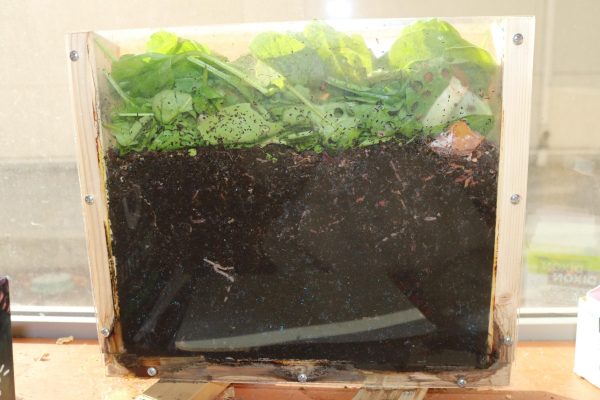ChatGPT seen as a new way to cheat
New AI can write papers for students
ChatGPT sparks debate about whether it is a friend or foe to education.
A new AI chatbot called ChatGPT is upending teaching at Cal High because of its potential for cheating.
ChatGPT is an AI-powered language model launched by OpenAI last November. It can hold conversations and construct thorough responses to prompts about anything from essays to code to calculus. The program garners 13 million unique users per day, according to CBS News.
For the creative user, ChatGPT has immense potential. It can brainstorm ideas, rewrite texts in a different style, or explain complex subjects. But teachers are worried that the chatbot will replace their students’ learning by completing assignments for them.
“I know that some people have been using ChatGPT to write their homework for them,” an anonymous sophomore who did not want to be implicated with cheating said. “It’s particularly popular for English and history class prompts.”
AP Lit teacher Wade Wilgus said he and other teachers have changed their writing prompts to more-in-depth, hard-to-plagiarize questions. Wilgus is having his students work on writing pieces during class time instead of giving them the free reign to do writing outside of class, making it harder for students to use the AI for their prompts.
“I’ve reconfigured assignments so that they have to be written by humans, not machines,” Wilgus said. “[ChatGPT] means that we [Cal teachers] will have to give thoughtful assignments and not lazy assignments.”
Wilgus’ concerns are shared by the district, which has blocked access to ChatGPT and other AI systems on school WiFi due to their potential for cheating. Additionally, many Cal teachers have developed wariness and a sense of distrust towards ChatGPT.
“I definitely feel threatened by it,” English teacher Ted Levey said.
Wilgus said that the program teachers used to detect plagiarism before, Turnitin.com, was made obsolete by ChatGPT because it could not detect that essays were written by AI.
English teacher Alexis Fernando says teachers are having to use other methods to detect when students use AI. While ChatGPT’s writing is realistic enough to reasonably pass for a human, he says it does have giveaways.
Fernando said teachers generally know students’ writing styles and when that writing style changes quickly, it’s obvious that the student is cheating. Teachers are now vigilantly trying to identify work that may have been written by ChatGPT.
“Having AI write their essays is almost pointless because nine times out of ten they are caught,” Fernando said.
Wilgus has tested the AI before to deduce its potential for cheating by feeding it a prompt from Cal English teacher Mrs. Lyon’s class. After grading, ChatGPT’s response received a score of B-.
“I can even ask it to give me instructions for how to get a peanut butter sandwich out of a Sony VCR,” Wilgus said. “Or make a response in the style of the King James Bible.”
However, ChatGPT has its limitations. Since it is an AI, ChatGPT cannot write emotive responses or pieces with passion. Additionally, it’s hard to access at various times during the day, due to internal glitches that occur when too many users are on the site at once.
ChatGPT is also prone to provide wrong answers since it has not gone through sufficient training. As emeritus.org puts it, “because the average rate of getting correct answers from ChatGPT is too low, the posting of answers created by ChatGPT is substantially harmful to users who are asking or looking for correct answers.”
When given calculus word problems, ChatGPT often answers incorrectly. In fact, it responded to simple arithmetic. When asked “what is the value of 4/6?”, it responded with “3”.
Even though ChatGPT has been used at Cal as an instrument for plagiarism, Wilgus says that from a different standpoint, it could be beneficial for teachers when used to its full extent.
“I use it [ChatGPT] to generate lists of vocabulary words that I need my AP students to use,” Wilgus said. “If I need to make an article available at a high reading or a low reading level, I can ask ChatGPT to rewrite it to be more or less advanced.”
Students also expressed optimism about the opportunities that AI creates. Senior Ashley Chang, who is the AI expert for the Samsung Solve For Tomorrow competition team at Cal, points out that it could benefit students in creative projects.
“ChatGPT is useful for creative writing and programming,” Chang said.
Others, however, feel that ChatGPT, while useful, is ultimately not a product that high school students should be using, especially on campus.
“I think ChatGPT is very useful and will develop to help us a lot in the future,” Freshman Kovid Jaddu said. “But high-schoolers shouldn’t have access to it.”
Sophomore Zach Kuruvilla agrees with Jaddu. He also points out that using ChatGPT can be considered unethical.
“Yeah, it’s [ChatGPT] useful but unethical. It’s different from Google because you see all these different sources on Google. But on ChatGPT, you’re just trusting this one robot,” Kuruvilla said.
Now that ChatGPT has made landfall at Cal, there’s no doubt that it will have a lasting impact on both students and teachers. Wilgus points out that it could also change the way students work positively despite its potentially illicit applications.
“Many teachers might be preoccupied with the plagiarism aspects, but I’m interested in it,” Wilgus said. “I think it will force students to write with their own voices and to write to think, rather than writing to be assessed.”
Wilgus also says that the influence of ChatGPT will cause changes that allow both teachers and students to think more critically in the classroom. He thinks that AI would help students appreciate the value of writing more and encourage teachers to give out more in-depth, thoughtful prompts.
“For me at least, it means repositioning my teaching from being evaluative to instead helping students understand themselves as writers,” Wilgus said. “And it’s less what the final outcome is and more of the steps and thinking along the way.”
__________________________________________________________________________________________________________________________________________
ChatGPT generates its own newspaper article about itself
This is the story ChatGPT created when editors inputted the prompt, “Write a news article about ChatGPT and its effects on high school students”.
A new AI tool, ChatGPT, has been making waves in the academic world as a valuable resource for high school students. Developed by OpenAI, ChatGPT is a language model that can answer questions and provide information on a wide range of topics.
For students, ChatGPT provides quick and accurate answers to their questions, helping them with their homework and assignments. With the ability to answer questions in real-time, ChatGPT has the potential to greatly enhance the learning experience for students. Moreover, since the AI tool provides factual information, it helps to reduce the risk of students using information that is not accurate, thereby improving the quality of their work.
Additionally, ChatGPT also has the potential to prevent cheating in schools. By providing students with instant access to information, it eliminates the need for them to rely on questionable sources or cheat during exams. Furthermore, with its advanced capabilities, ChatGPT can even detect and prevent plagiarism, making it an ideal tool for teachers to use in their classrooms.
Staff writer Tejas Mahesh and news editor Andrew Ma contributed to this story.
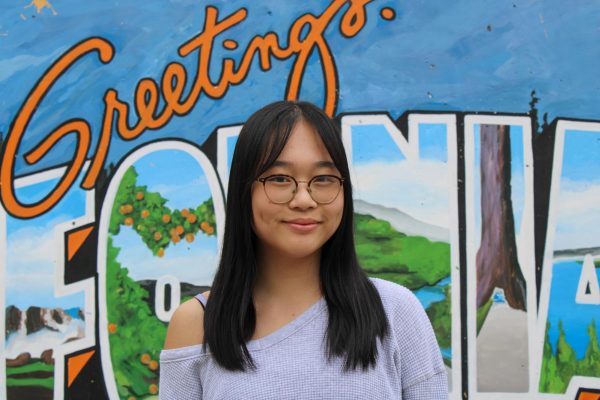
Senior Sophia Liu is at The Californian for a third year as an assistant news editor. She’s hoping to make valuable memories at Cal this year working...
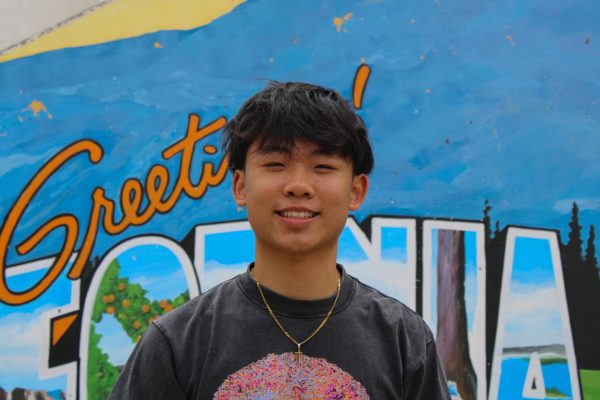
Andrew Chen is a Junior at Cal High and has been doing Newspaper for three years. He enjoys writing about current events and sports relevant to Cal. He’s...
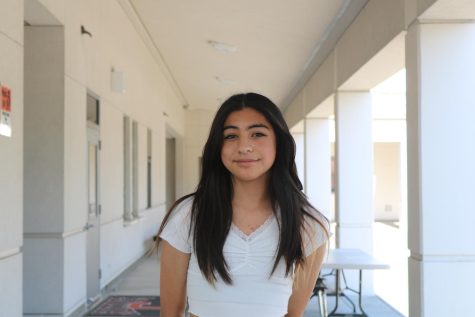
Junior Cameron Ho is a journalist for The Californian. Whenever they aren't doing school work you can find them playing video games with friends. They...
